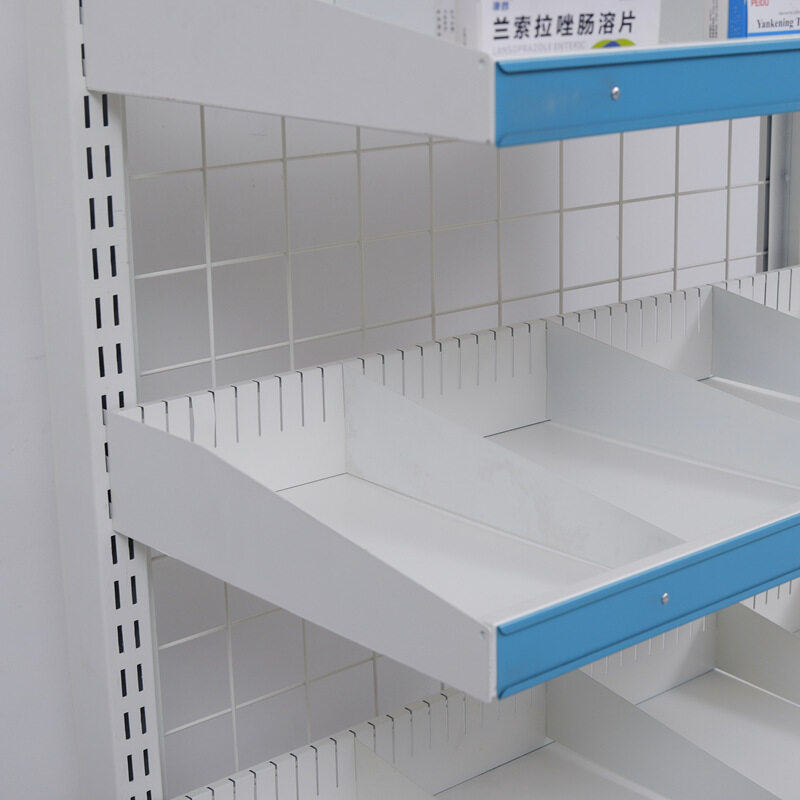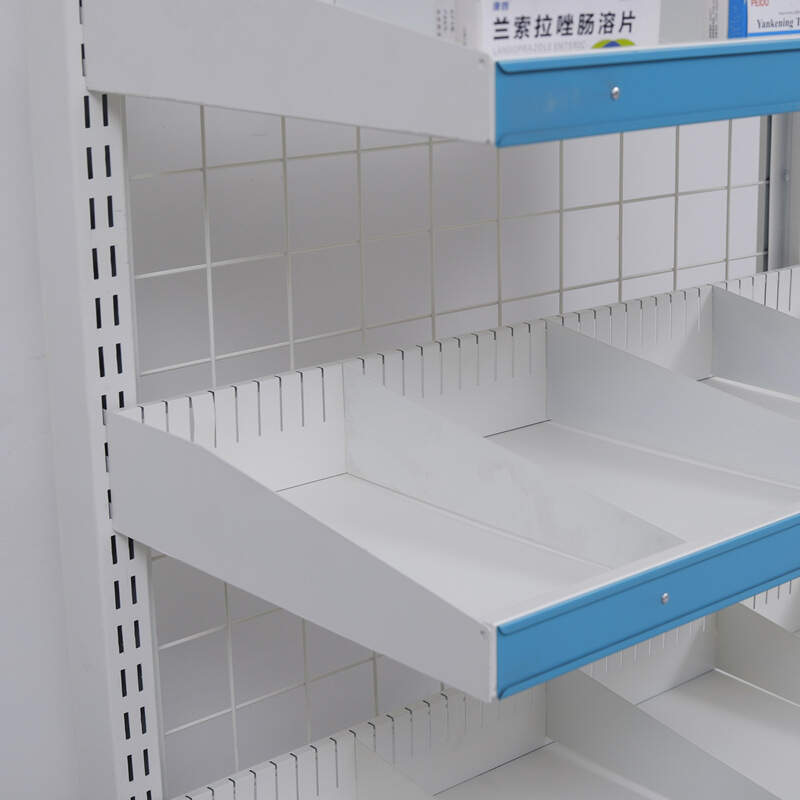Email format error
Email cannot be empty
Email already exists
6-20 characters(letters plus numbers only)
The password is inconsistent
Email format error
Email cannot be empty
Email does not exist
6-20 characters(letters plus numbers only)
The password is inconsistent

News

A Guide to Innovative Pharmacy Shelf Design: Revolutionizing Your Drugstore Experience
In an ever-evolving retail landscape, pharmacy shelf design plays a crucial role in enhancing customer experience, boosting sales, and ensuring the efficient operation of a pharmacy. A well-thought-out design can transform a pharmacy into a more welcoming and user-friendly space, making it easier for customers to find what they need and for staff to manage inventory effectively. This blog delves into the essentials of pharmacy shelf design, offering insights into current trends, practical tips, and the benefits of a strategic approach.
The Importance of Pharmacy Shelf Design
Pharmacy shelf design is not just about arranging products neatly. It's about creating an environment that facilitates easy navigation, highlights key products, and aligns with the overall branding of the pharmacy. An effective shelf design can significantly impact customer satisfaction and sales performance. Here's why it matters:
1. Enhanced Customer Experience
A well-organized pharmacy with an intuitive shelf design allows customers to quickly locate the medications or products they need. Clear labeling, logical placement, and easy access to high-demand items can make a big difference in how satisfied customers are with their shopping experience. For instance, having over-the-counter medications at eye level and in clearly marked sections helps customers find what they're looking for without frustration.
2. Optimized Space Utilization
Pharmacy shelf design must make the most of the available space. Efficient shelving not only maximizes storage but also ensures that the pharmacy looks tidy and professional. Shelves that are well-designed can accommodate a wide range of products without appearing overcrowded, which can help maintain a pleasant shopping environment.
3. Increased Sales Opportunities
Strategic shelf design can also boost sales. By placing high-margin or promotional items in prominent locations, such as at eye level or near checkout counters, pharmacies can encourage impulse purchases. Additionally, using techniques like cross-merchandising, where related products are placed together, can increase the likelihood of additional sales.

Trends in Pharmacy Shelf Design
Pharmacy shelf design has evolved considerably in recent years, with new trends reflecting changes in consumer behavior and technological advancements. Here are some of the most notable trends shaping the industry:
1. Interactive Shelving
Modern pharmacies are integrating technology into their shelf design to enhance the shopping experience. Interactive shelving units with built-in screens or QR codes allow customers to access detailed product information, watch instructional videos, or even get personalized recommendations based on their needs. This tech-savvy approach not only engages customers but also provides them with valuable information at their fingertips.
2. Sustainable Design
Sustainability is becoming a significant focus in pharmacy shelf design. Many pharmacies are now opting for eco-friendly materials and designs that minimize waste. Recycled materials, energy-efficient lighting, and modular shelving systems that can be easily reconfigured are some of the ways pharmacies are embracing sustainability. This not only helps the environment but also appeals to increasingly eco-conscious consumers.
3. Modular and Flexible Shelving
Flexibility is key in today’s dynamic retail environment. Modular shelving systems allow pharmacies to adapt their layout quickly in response to changing inventory or promotional needs. These systems can be reconfigured with ease, making it simpler to update the store’s design without significant overhauls.
4. Enhanced Branding
Pharmacies are using shelf design to reinforce their brand identity. Customizable shelving units with brand colors, logos, and design elements can create a cohesive and memorable shopping experience. This not only strengthens brand recognition but also fosters a sense of trust and reliability among customers.
Practical Tips for Effective Pharmacy Shelf Design
Creating an effective pharmacy shelf design involves a mix of creativity, practicality, and understanding of customer behavior. Here are some practical tips to consider:
1. Understand Customer Needs
Start by analyzing the needs and preferences of your target customers. What are their common concerns? What products do they frequently seek? Understanding these factors will help you design shelves that cater to their needs effectively. For example, if your pharmacy caters to an older demographic, ensure that products are placed at accessible heights and that signage is easy to read.
2. Implement Clear Signage
Effective signage is crucial for guiding customers through your pharmacy. Use clear, concise labels for different product categories and ensure they are easy to spot. Incorporating color-coded signs or icons can also make navigation more intuitive.
3. Prioritize Accessibility
Ensure that your shelving design promotes accessibility for all customers, including those with disabilities. Shelves should be easy to reach and navigate, with enough space between units to accommodate wheelchairs or strollers. Consider using adjustable shelves to cater to various product sizes and heights.
4. Use Strategic Lighting
Lighting plays a significant role in highlighting products and creating an inviting atmosphere. Use bright, focused lighting to draw attention to key items and ensure that shelves are well-lit. Avoid harsh lighting that can create glare or shadows, making it difficult for customers to see products clearly.
5. Regularly Update and Reorganize
A pharmacy’s inventory is always changing, so regular updates to shelf design are essential. Rotate products to keep the display fresh and seasonal. Periodically review sales data to identify which items are performing well and adjust the placement of these products to maximize visibility.
6. Incorporate Customer Feedback
Solicit feedback from customers about their shopping experience and use this information to make improvements. If customers frequently mention difficulties finding certain products or suggest additional items they’d like to see, take these insights into account when redesigning your shelves.
The Future of Pharmacy Shelf Design
Looking ahead, pharmacy shelf design will continue to evolve with advancements in technology and changes in consumer expectations. Innovations such as smart shelves equipped with sensors that track inventory levels or augmented reality features that assist with product searches are on the horizon. As these technologies become more accessible, they will further enhance the efficiency and effectiveness of pharmacy shelf design.
In conclusion, pharmacy shelf design is a crucial element of creating a successful and customer-friendly pharmacy environment. By focusing on effective layout, incorporating current trends, and prioritizing customer needs, pharmacies can create spaces that not only improve the shopping experience but also drive sales and operational efficiency. As the industry continues to evolve, staying abreast of new developments and embracing innovative design solutions will be key to staying ahead of the competition and meeting the ever-changing needs of customers.

